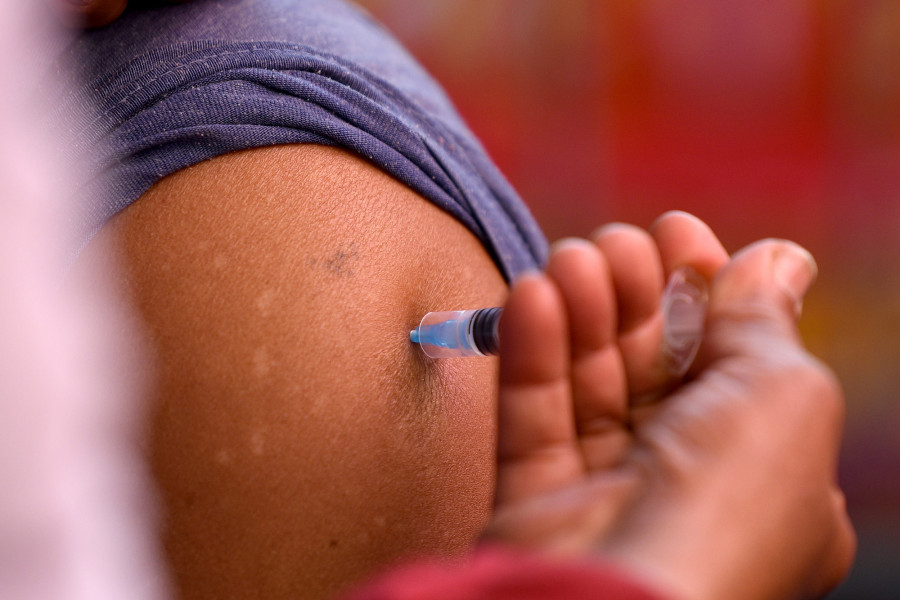Editorial
What's with the delay?
The government must ensure that all eligible citizens are inoculated.
We are losing our fellow citizens to the coronavirus every day, and we must pull out all the stops to ensure that this chain of infection and death comes to a close as soon as possible. These are extraordinary times that call for action on a war footing. But the vaccine procurement programme seems to be suffering from the same lethargy, even helplessness, that characterises our bureaucracy and politics. Our leaders and administrators cannot get away by feigning helplessness, as every minute of our fight against the pandemic is precious. Just as the virus is undergoing various mutations, we must constantly revise our defence mechanism, especially with regard to our procurement of the life-saving vaccines.
Even though Nepal has made payment for 2 million doses of the vaccine, the Serum Institute of India has not completed half of the deliveries yet as India has put restrictions on their export. Though unfortunate, the Indian ban was more or less expected, as India itself has been under tremendous pressure inoculating millions of its own citizens. After a brief lull, the southern neighbour has once again witnessed a surge in the number of coronavirus infections. Hospitals are overburdened, doctors are overworked, oxygen cylinders are emptying, and patients are dying by the thousands each day. The government is under great strain, trying to inoculate more of its citizens at the earliest. So, our dependence almost exclusively on India for procurement of the vaccine was never a good idea.
The government’s dependence on the vaccines to be distributed under the COVAX facility has also cost us dearly, as the programme has failed to provide them due to the ongoing crisis. As of now, Nepal has received only 348,000 out of the 2.25 million doses it is eligible to receive under the programme. The government hopes to receive additional doses by the end of May or early June, but that is too late and too little. Moreover, the government has yet to succeed in its efforts to bring in private institutions for vaccine procurement.
Since the Department of Drug Administration has granted emergency use authorisation to Covaxin developed by India’s Bharat Biotech, BBIBP-CorV developed by China’s Sinopharm and Sputnik V vaccine developed by Russia’s Gamaleya National Centre of Epidemiology and Microbiology, we already have multiple doors to knock on for procurement of vaccines. The World Health Organisation has also vouched for the safety of the Covid-19 vaccines currently in use, so there is no point in depending only on certain vendors and institutions for procuring them. Every single life is important for us, and we cannot be lenient when it comes to procuring life-saving vaccines for the citizens by any means.
The question is whether our administrators and politicians are resourceful enough to use various ways to procure the vaccines. They do not state clearly whether the delay in diversifying the procurement has been delayed due to pricing or their lack of diplomatic acumen. On the financial aspect, although it is expensive in the short run, the long-term benefits of quicker vaccination are greater even in economic terms. A fully vaccinated workforce can return to work sooner, thereby resuscitating the economy quickly. In any case, officials have claimed money is not a problem as the World Bank and the Asian Development Bank have said they will provide funds to buy them. The government must, therefore, use all options at its disposal to ensure that all eligible citizens are inoculated at the earliest.




 9.6°C Kathmandu
9.6°C Kathmandu














